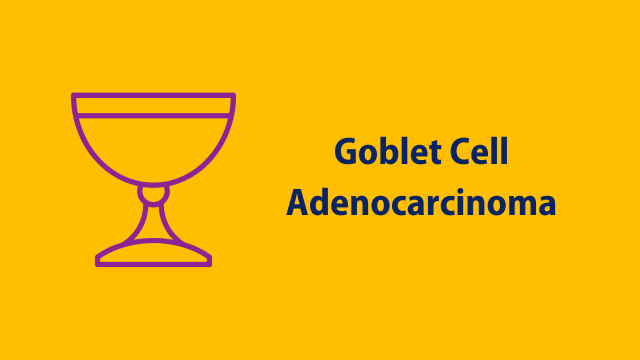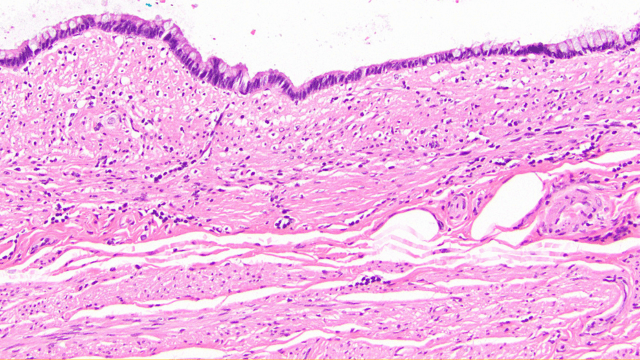Adenocarcinoma Ex-Goblet Cell of the appendix is a type of cancer that originates from the cells that line the inside of the appendix.


Adenocarcinoma Ex-Goblet Cell of the appendix is a type of cancer that originates from the cells that line the inside of the appendix.

Goblet cell adenocarcinoma is a rare type of cancer that arises from cells that are normally present in the lining of the appendix.

Yes, pseudomyxoma peritonei (PMP) is a rare cancer that usually starts in the appendix and can spread to the peritoneum, which is the lining of the abdominal cavity.
A recent study in JAMA Oncology revealed that around 10% of individuals diagnosed with appendiceal cancer have an inherited genetic variant that increases their risk for cancer predisposition. This is the first study to identify inherited risk factors for this uncommon type of cancer.
Doctors use a score called PRGS to see how much a treatment called cytoreductive surgery and HIPEC helps people with PMP and appendix cancer.
The treatment and curability of cancer of the appendix depends on various factors such as the type of cancer, the stage of cancer, and the overall health of the patient.
Doctors use the PCI score to help guide treatment options for Pseudomyxoma Peritonei (PMP) and other cancers that affect the lining of the abdomen.
HIPEC is a special kind of chemotherapy that is used to treat cancer in the abdomen.
“Because of my uncertain prognosis, I am keen to make lots of memories with my children, but now have limited income due to my inability to work as many hours as I used to.”
Being a registered charity doesn’t just mean that we are a not for profit organisation, it’s more than that.
The decision to undergo cytoreductive surgery with HIPEC for pseudomyxoma peritonei (PMP) is a personal one and should be made in consultation with your medical team.
Most studies show that PMP affects men and women almost equally. The average age at diagnosis 54.